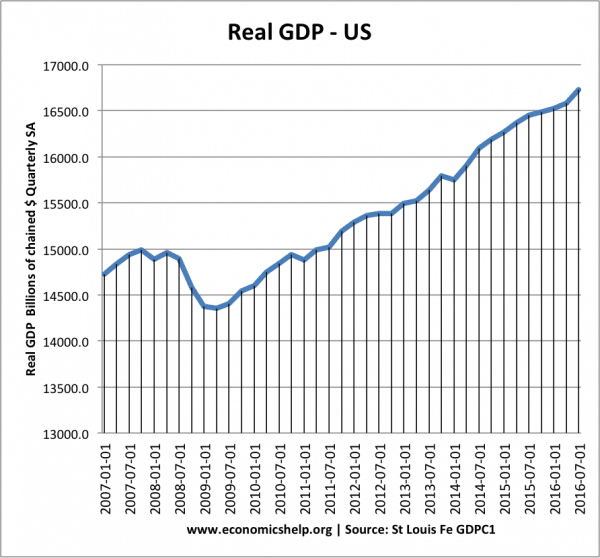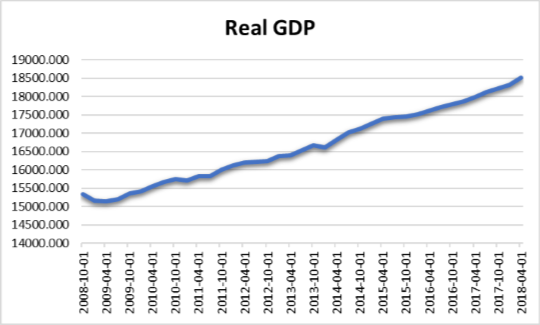I think it is the 'system' ~ the Fed and the many and varied agencies ~ that get both most of the blame for 2000-2008 and deserve most of the credit for 2010 to 2019, not any particular politician or party.
The United States has a complex but well-managed system that seems to balance bureaucratic and political inclinations with the realities of the commercial world. It fails, sometimes, but it also has well-designed mechanisms for making corrections ... the system works; ditto for Australia, Britain, Canada and the non-Eurozone Europeans and Japan, Singapore and so on.
My objection to President Trump's policy direction, as I understand it, which
I admit is very imperfectly, is that it is too short term. He seems, to me, to be still thinking like a real estate developer: on a quarterly results basis and 'believing' that there is, somewhere, the national or global equivalent of a bankruptcy court that will bail him out if he makes a mistake. I think a political leader needs to have a 'five-year plan' sort of mentality while a bureaucratic leader, like the Chairman of the Federal Reserve or the Governor of a central bank, needs to have a generational plan, one with a 25-year view.
That makes for a very healthy tension between the elected, and ultimately
responsible to the people, politicians and the ultra-powerful bureaucrats. Neither likes being thwarted by the other but each must accept the 'checks and balances' which were, in some large part, developed in Canada circa 1960, in the
Coyne Affair which pitted Bank of Canada Governor James Coyne (father of columnist Andrew Coyne) against Prime Minister John Diefenbaker ~ Diefenbaker won the battle, Coyne (and all central bankers, everywhere) won the war because, in those days, the world looked to Canada for leadership in many fields, including governance. My fear is that, unlike e.g. Reagan, Bush, Clinton, Bush and Obama, all of whom disliked their central bankers but respected their role and independence, President Trump will try to use popular will to bend the Fed to his agenda ... even if you think his agenda is correct, the balance is more important.
America is doing well ... Australia has, since about 1995, done even better, Canada, not so much. None of Clinton, Bush, Obama or Trump deserve all the credit for America's success; neither do Greenspan, Bernanke, Yellen and Powell. None of them deserves all the blame for 2008, either. If you really want to give credit to someone then it's Harry Dexter White, John Maynard Keynes, Montague Norman and Marriner Eccles, none of whom mean much of anything to most people, sadly.
Edited: punctuation



